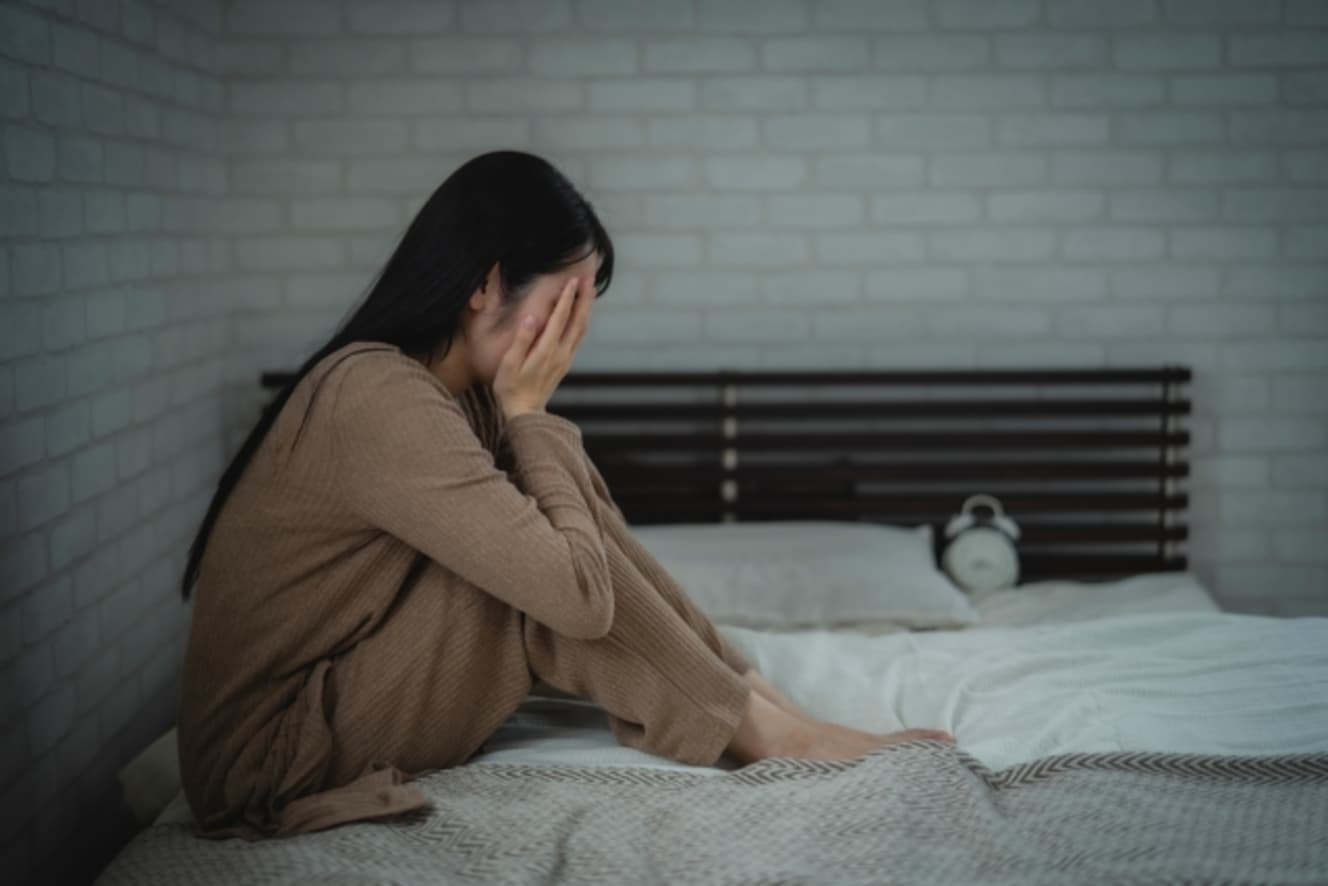Takers of Sleeping Pills Talk About the Fear of Withdrawal Symptoms
I was on a "magic drug" but now I can't stop..." Experiences of reducing and abstaining from benzodiazepines (Part 1)
Benzodiazepines, once easily prescribed by doctors.
Benzodiazepines (“benzos”) are widely used as sleeping pills and anti-anxiety drugs. In recent years, as the Ministry of Health, Labor, and Welfare (MHLW) has tightened regulations on the mass prescription of psychotropic drugs, there has been a “drug reduction boom” among patients. However, abrupt drug reduction carries risks.
The writer, who has been taking benzo sleeping pills for a long time, discusses the fear of withdrawal symptoms and how to reduce or abstain from taking drugs to control withdrawal symptoms through his own experience of reducing or abstaining from drugs.
The article is divided into two parts: Part 1 and Part 2.

Prescribed by doctors as “safe and well effective drugs” to patients with Insomnia.
Many people may not be familiar with “benzos,” but may recognize “Depas,” “Halcion,” or “Lendormin”. These drugs have been prescribed to patients with insomnia and anxiety symptoms not only in psychiatry and psychosomatic medicine, but also in general internal medicine, surgery, dermatology, orthopedics, and many other medical departments.
In 2007, when the author was troubled by insomnia that began suddenly, she consulted her internal medicine doctor, who was treating her underlying medical condition, and was prescribed Depas as a “safe and effective drug”. Depas, a muscle relaxant, worked well for the author, who was unable to relax even after getting under the covers.
“I used to take hours to fall asleep, but I was able to fall asleep so quickly that I was scared. The pleasure of “being able to sleep” makes “not being able to sleep” more frightening. The feeling of security that I could sleep if I took it made Depas an indispensable drug for me.”
Depas and other benzodiazepines are said to reduce brain excitation by acting on benzodiazepine (BZD) receptors in the brain, thereby improving anxiety, nervousness, and insomnia. Although they are fast-acting, side effects such as tolerance, dependence, lightheadedness due to their muscle relaxant effects, and amnesia are problematic.
For 10 years one pill turned into two pills, with the excuse that “I should sleep even with the help of drugs.”
“Two years after I started taking the drug, I could no longer sleep as well as before; I increased the dose from one pill (0.5 mg) to two (1 mg), but gradually the number of days that I still could not sleep increased. I became afraid of drug tolerance and hesitated to increase the dosage any further, but I continued to take two tablets every night for 10 years, making the excuse that it was better to sleep even with the help of the medication.”
Toward the end of 2016, however, she was informed by her doctor that the rules for prescribing had changed and that she could only be prescribed a 30-day supply of Depas. Until then, she had been prescribed a two-month supply for approximately 60 days, depending on the frequency of her visits to the hospital, but now she was suddenly limited to 30 days. If she continued to take two tablets every night as before, she would run out halfway through.
“When I was wondering whether I should reduce the Depas or stop taking it altogether, I learned that overseas there were suggestions that taking benzos for a long period of time could increase the risk of dementia. At the time, there were an increasing number of such articles on the Internet, and I was aware of it whether I wanted to or not. I began to seriously consider stopping from intaking Depas.”
An “ordinary drug” suddenly became like a “narcotic”
Why was the administration period of Depas suddenly limited to 30 days? What kind of rule revision did the government make?
In fact, in 2016, the Narcotics and Psychotropics Control Law was revised, and 44 benzos, including Depas, were designated as “psychotropic drugs’. Benzos, which until then had been widely taken as “ordinary drugs,” were suddenly treated like “narcotics” and their administration period was limited to 30 days.
At the same time, the Ministry of Health, Labor, and Welfare (MHLW) revised its reimbursement system in an effort to curb the mass prescribing of benzos and other psychotropic drugs. Medical journalist Tokio Tsukizaki, who has been reporting on psychotropic drugs and has written a book entitled “The Tricks to Slowly Reduce Drugs” that summarizes the know-how on how to safely reduce the dosage of psychotropic drugs, explains,
“Japan has a much higher frequency of mass prescribing of psychotropic drugs than any other country, and this has long been viewed as a problem.”
The Japanese medical insurance system, which has prioritized drug therapy, which requires less time for treatment, over psychotherapy, has made heavy prescribing of psychotropic drugs the norm, and the Ministry of Health, Labor, and Welfare introduced a system around the mid-1990s that reduces reimbursement for hospitals that prescribe too many psychotropic drugs.
Medical institutions were forced to reduce their reimbursement if they prescribed too many different types of psychotropic drugs or administered them over a long period of time.
 The Ministry of Health, Labour, and Welfare (MHLW) began to impose restrictions through reimbursement in the mid-2010s in an effort to curb the mass prescription of psychotropic drugs (PHOTO: AFRO)
The Ministry of Health, Labour, and Welfare (MHLW) began to impose restrictions through reimbursement in the mid-2010s in an effort to curb the mass prescription of psychotropic drugs (PHOTO: AFRO)Abrupt reduction/abstinence comes with risks such as insomnia, headaches, tinnitus, glare in the eyes, and suicidal thoughts
If doctors would provide their patients with appropriate guidance on reducing or abstaining from drugs, they might be happy that a mechanism was in place to curb the mass prescribing of multiple drugs. At the time, however, Ms. Tsukizaki received a number of complaints from patients who were suddenly told by their doctors that they could no longer prescribe this drug.
“There were cases, I heard, where doctors urged patients to abruptly reduce or abstain from medication without taking their medical conditions into consideration. However, it is not enough to blindly reduce the amount of medication. In particular, abrupt changes in the type and dosage of medications carry significant risks.”
It has been pointed out that psychotropic drugs such as benzos may cause “withdrawal symptoms” if a person who has been taking them for a long time suddenly reduces or abstains from them.
According to Ms. Tsukizaki, withdrawal symptoms vary from person to person. Insomnia, headaches, tinnitus, glare in the eyes, muscle stiffness. In some cases, patients suffer from nightmares, intense suicidal thoughts, and “dystonia,” a condition in which various parts of the body, including the limbs, mouth, and tongue, move on their own. Depending on the type and amount of medication they are taking, the symptoms, intensity, and length of time it takes for withdrawal symptoms to begin and last vary.
“The length of withdrawal symptoms seems to be strongly influenced by the half-life of the drug (the time it takes for the drug to enter the body and for its blood drug concentration to decrease by half).”
“For example, with Depas, which has a short half-life of 6 hours, symptoms appear immediately after reduction or withdrawal and do not seem to last very long.”
“Because many physicians do not recognize withdrawal symptoms, or even if they do, they take them lightly as ‶2 weeks″, there are cases where they see patients suffering from Mayrax withdrawal symptoms and diagnose a relapse of the disease. Doctors do not understand how difficult withdrawal symptoms can be.”
3 months of hell: “I’m sleepy but I can’t sleep”
I don’t think that my doctor expected that I would experience withdrawal symptoms.
When I told my doctor that I wanted to stop taking Depas, he prescribed a new sleeping pill for me to take instead of the two Depas pills.
The sleeping pill “Belsomra″ prescribed as an alternative to Depas is a ‶orexin receptor antagonist″ that, unlike benzos, moves the brain into a hypnotic state by inhibiting orexin, which keeps the brain awake, and is not recognized as being dependent. The doctor explained that it is a drug that strengthens natural sleepiness.
 After reducing the dosage by one pill, her brain remained awake and she could not stop thinking even after getting under the covers.
After reducing the dosage by one pill, her brain remained awake and she could not stop thinking even after getting under the covers.On the night she was prescribed Belsomra, she took two Belsomra tablets and went to bed without taking Depas as instructed, but she went to bed in the morning with almost no sleep. On the third day, she gave up trying to abstain from medication and switched to a combination of one Depas and one Belsomra, which her doctor had suggested in case she could not sleep.
However, no matter how she tried, she could not sleep and suffered from rebound insomnia (insomnia stronger than before taking sleeping pills caused by stopping or reducing sleeping pills). Eventually, she developed myoclonus on falling asleep (twitching of arms and legs that occurs when falling asleep) and obsessive thoughts such as “I must not fall asleep,” and she kept wanting to sleep to the point of death. She felt as if her brain was always awake and she could not rest at all.
“At the time, I had no knowledge of ‶withdrawal symptoms‶ and assumed that these pains were caused by the recurrence of insomnia due to drug reduction. So even though I thought “I’m at my limit,” I couldn’t give up on reducing my dosage by one pill, so I just waited for time to pass.”
“After about three months, I think. I was gradually able to fall asleep more easily and get a certain amount of sleep.”
“Many people who experience severe withdrawal symptoms seem to be able to get rid of them if they return to their original dosage within a week or so,” Tsukizaki says. If the author had immediately returned to the two Depas tablets and restarted the drug reduction, she would not have been in such a hellish state.
How did the author manage to get off the drugs after that?
In the second part of this report, Mr. Tsukizaki will share with you the method of reducing and abstaining from drugs to suppress withdrawal symptoms as much as possible, which he has learned from interviewing many patients.
Tokio Tsukizaki is a medical journalist and facilitator. After working for a publishing company, he studied under writer Naoki Inose and contributed medical articles to Nikkei Trendy, Nikkan Sports, Weekly Asahi, and other publications. In 1993, when a family member developed mental illness, he began covering mental health and welfare. He is the author of the book “How to Get a Psychiatrist Right ” (published by Shogakukan). His most recent book is “How to Reduce and Abstain from Psychotropic Drugs,” a how-to book based on interviews with patients. He also organizes workshops to discuss psychotropic drugs.
Interview and text: Koiko Tsumaike
After working as an editor for a women's magazine, she became a writer. She has 40 years of experience with chronic diseases. This time, she interviewed and wrote from the perspective of a patient who has received medical care for many years.